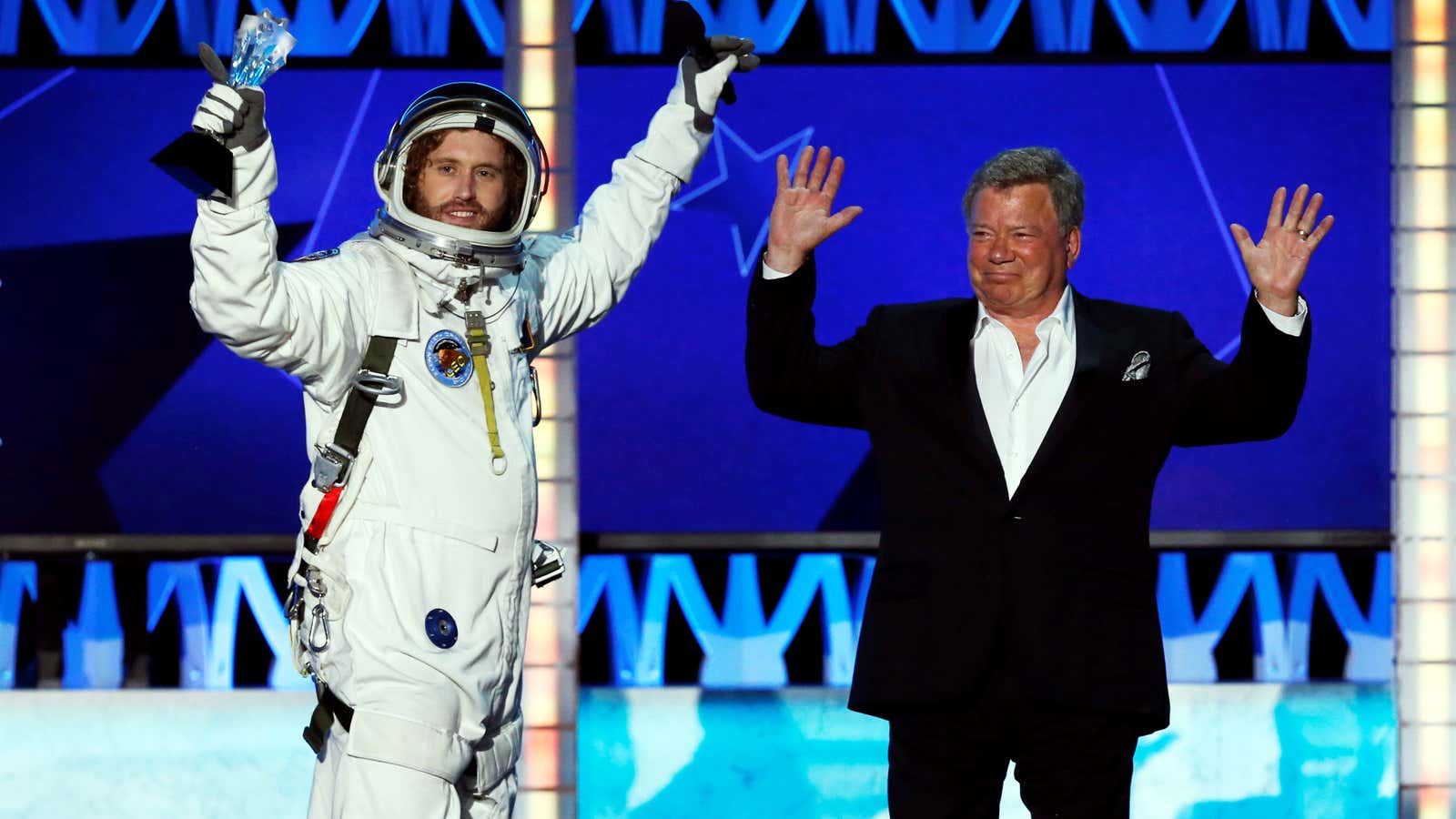When Alexandra Abrams first walked into Blue Origin’s headquarters and saw a model of the USS Enterprise used in the filming of the first Star Trek series, she thought, “Ally, you are home, this is your mothership.”
That turned out to be a false impression, the former Blue Origin director of internal communications told me last week, after she revealed the company’s dysfunctional culture in an open letter written with twenty current and former employees at Jeff Bezos’ space firm. Their description of a sexist culture and excessive demands on the workers, which the company disputes, led the Federal Aviation Administration to open an investigation ahead of its next suborbital space tourism mission, expected Oct. 12.
The headline passenger? None other than William Shatner, the actor who so famously portrayed Star Trek’s Captain Kirk.
Space advocates need more than science fiction
Science fiction is inescapable in space exploration; it creates the vocabulary to discuss and promote things that have yet to be invented. Technologists have been obsessed with the genre at least since Konstantin Tsiolkovsky read Jules Verne and reasoned out the mathematics of spaceflight. Bezos, Elon Musk, and other space entrepreneurs are inspired by futuristic stories of all stripes. So are many of their employees—Blue Origin’s lobby, which in addition to the USS Enterprise boasts a life-size Jules Verne-style spacecraft used as a conference room and more realistic gear like a cosmonaut’s spacesuit, is a recruiting tool, as Abrams’ experience shows.
With commercial space activity increasingly commonplace, I’m pining for a more relevant vision of the future—and advocates of private space might want one, too, if they hope to gain broad support for their endeavors. Bezos may be tickled by launching his favorite TV icon, but it gives the rest of the world permission to call his company a sideshow. Just watch SNL. (Well, don’t watch SNL, but you get my point.) I feel a similar impulse about hearkening back to Apollo 11 landing on the moon. You could be talking about what going to the moon right now would accomplish—nearly two-thirds of Americans weren’t alive when the last astronaut departed.
Bezos has outlined his vision of where space travel is headed, driven by concerns about climate change, energy availability, and the visions of space settlement theorist Gerard O’Neill, though never in much detail. Handed a megaphone on its own founder’s launch, and now with this second trip to space with human passengers, Blue Origin’s loudest message is nostalgia.
Blue Origin is balancing entertainment and ambition
Every space company faces a Trek temptation. In its first rocket launch, SpaceX tried and failed to launch a portion of the cremated remains of actor James Doohan, who played the engineer Scotty on the original Star Trek. (A portion of Doohan’s remains would later be launched on a Falcon 9, and space tourist Richard Garriot says he brought some of Doohan’s ashes on a 2008 visit to the International Space Station.) But SpaceX, at least, carried a paid cargo for the memorial firm Celestis, not an orbital influencer. Musk’s most famous PR stunt—launching a Tesla into deep space—at least gestured at the future.
Suborbital tourism is an entertainment product; Virgin Galactic nodded to this in hiring the former manager of Disney’s global theme parks as its CEO. Blue, too, has done its market research, and the prototypical space tourist appears to be a wealthy man who is a Star Trek fan. On the other hand, Disney isn’t ostensibly at the vanguard of new economic revolution, or seeking multi-billion dollar contracts from NASA and the Pentagon.
Part of the problem is that science fiction only starts getting interesting once you leave the science behind. Star Trek wasn’t a show about spaceships, it was a vehicle for exploring what it means to be human. At least some engineers inspired to emulate visions of future technology also want a society to match, and they’re liable to notice when those goals diverge.
“Star Trek doesn’t just show the technological advancements,” Abrams told me. “They advanced socially. I thought Jeff was also aligned with that.”
A version of this post was originally published in Quartz’s Space Business newsletter.
